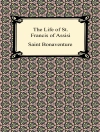The authors objective is to provide to the reader, as near as possible, a definitive record of the playing career of one of the best golfers who has ever lived. In addition, as happens with many researchers, it is inevitable that such a project will stray into other related areas; for example, other people or linked events. To illustrate, JFK assassination conspiracy theorists would no doubt have studied events surrounding Bobby Kennedy or Martin Luther King or indeed the Mafia, who some say were linked to that fateful event in November 1963. Similarly with my writings about Harry Vardon, I feel it important to illustrate to the reader how the life of a professional golfer differs in Vardons era to that of a present day PGA Tour player. How golf evolved will also provide the reader with a basis for making comparisons between players of yesteryear with those of today, and how difficult such comparatives might be. What was the norm in the late nineteenth century is quite different from today, and I believe the reader should be aware of that before making a judgment about someone like Harry Vardon. This book, therefore, is not only a diary of Harry Vardons playing career, but also a history of golf, which I sincerely hope the reader will find fascinating, of interest, and enjoyable. Any deviations from the subject matter, therefore, are intended to provide a backdrop and, hopefully, a better understanding of what golf was like in Vardons era.
Circa l’autore
All his life, Bill Williams have been passionate about sports, both as a player and an avid follower. In his earlier life, Bill played football (soccer) to a high standard and was associated with three professional clubs in England, although he was not a Gordon Banks, Pat Jennings, or Peter Shilton. Those who follow the sport will know from the three names mentioned that his position was that of goalkeeper. Once it became apparent that he would not aspire to super stardom, he played and coached at the semi-professional level for some fifteen years with a number of nonleague clubs in and around the London area. Besides football, which was exclusively a winter sport in those days, he competed in cricket, basketball and excelled in the one hundred meters, two hundred meters, and long jump in his school athletics. Being a tall guy, he was quick. If he didn’t play a sport at a competitive level, he did so for fun, and of course, he kept track of everything sport via newspapers and the TV. His passion though was always football, and when he was not playing he was a regular supporter, home and away, of the team he followed as a small boy, namely West Ham United. Bill was born in the East End of London, so it should be no surprise that his allegiances were to the local team. His father on the other hand was a Chelsea supporter, which manifested into a lot of good natured rivalry at home. His dad and his side of the family hailed from South West London and his mother was a Cockney girl and him a Cockney boy.












